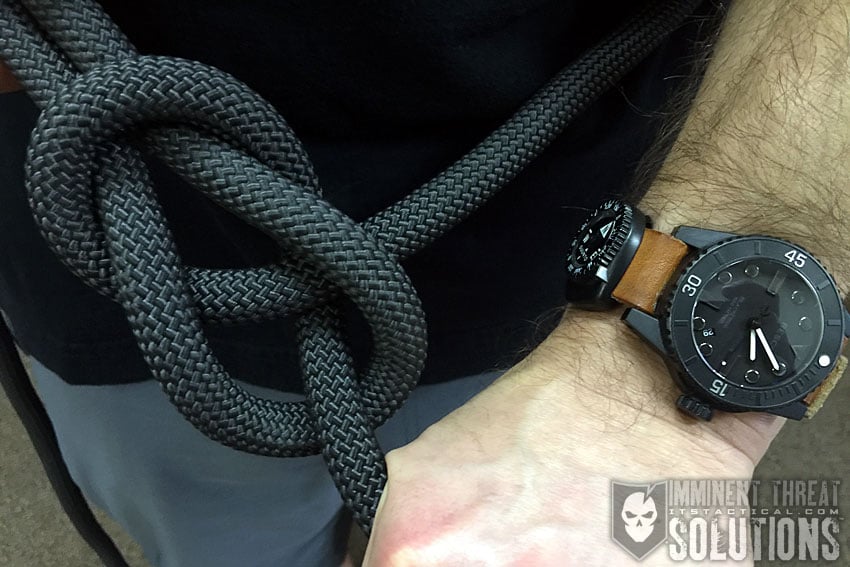
Today’s Knot of the Week in HD features one of my favorite knots that I wind up practicing on a fairly regular basis; the One-Handed Bowline. Not only is it fun to tie, unless you really had to in a lifesaving situation, but it can get competitive amongst other knotty friends to race and see who can tie one the fastest.
As the One-Handed Bowline has a lifesaving application, it’s important that you know the limitations of the knot that I address in the video below. This isn’t a loop that should be placed around your chest/armpits to pull you to safety up the side of a cliff, you could potentially asphyxiate before reaching the top.
One-Handed Bowline » Loops
(Strength: 2/Security: 2/Stability: 4/Difficulty: 4) See below for what these ratings mean.
The One-Handed Bowline is great for tying around your body in an emergency situation, like hanging on for dear life on a tree limb to prevent getting carried away downstream by raging rapids. Without letting go of the branch, you could maneuver a line thrown to you around your body and tie the One-Handed Bowline with, well, one hand.
Be careful with the application of this knot in emergency situations, just like with climbing knots, an improperly tied knot could produce a dire situation and safety must be observed at all times.
Not that you’d necessarily have time to tie a backup in a One-Handed Bowline, but I’ll mention that the strength and security ratings above for the standard Bowline are both increased if backing the knot up is feasible.
Ratings
Strength/Security/Stability/Difficulty
Each knot will be assigned a rating from 1-5 (1 representing the lowest score) based on the following four properties:
Strength – All knots will weaken the strength of a rope, however, there are knots that are stronger than others. The scale here will reflect how strong the rope remains with the specified knot.
Security – The security scale refers to how well the knot will stay tied, and resist coming loose under a normal load.
Stability – Stability refers to how easily the knot will come untied under an abnormal load (i.e. the knot being pulled in a direction it was not intended to) A lower score here represents instability.
Difficulty – The lower the number, the easier a knot is to tie.